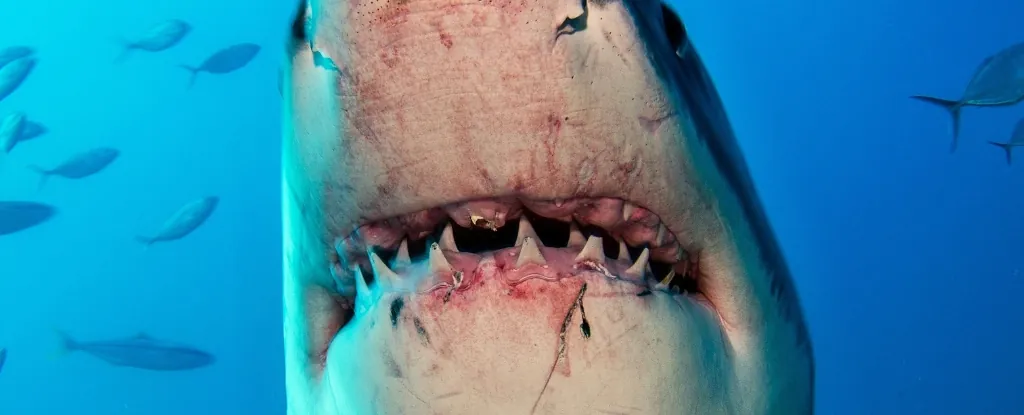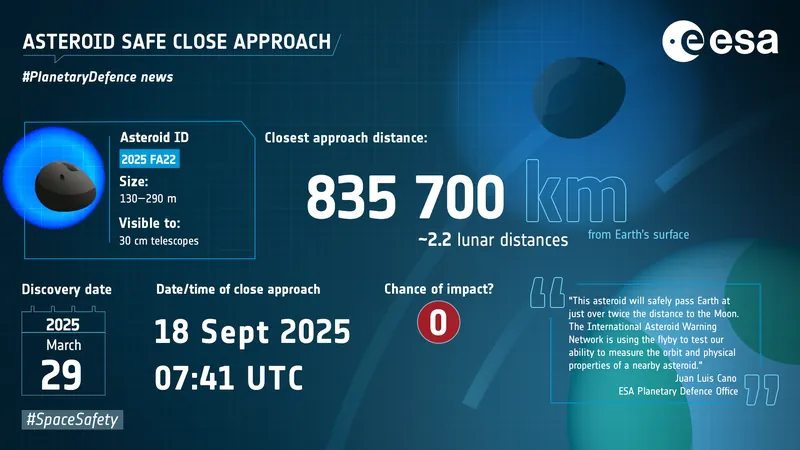
Sharks' Terrifying Teeth at Risk: Ocean Acidification's Alarming Impact!
2025-09-13
Author: Arjun
Will Sharks Need Dentures? The Shocking Threat Ahead!
Could we soon be fitting sharks with dentures? Recent research reveals a startling reality: as ocean acidification intensifies, these apex predators may lose their iconic, lethal bite.
Nature’s Perfect Teeth: A Shark's Survival Tool!
Shark teeth are the envy of the ocean—razor-sharp and in a constant state of renewal, they’re essential for these predators to catch and feast on prey. When one tooth falls out, another is ready to take its place. This extraordinary dental regeneration is crucial for their survival.
The Unseen Danger: Acidification Threatens Shark Teeth!
Despite their tough mineral composition, shark teeth are not invincible. Biologist Maximilian Baum from Heinrich Heine University warns that they are increasingly vulnerable to corrosion, a result of rising ocean acidification driven by human carbon emissions.
What's Happening to Our Oceans?
The oceans absorb roughly 30 percent of the carbon dioxide (CO2) released into the atmosphere. As CO2 levels increase, seawater chemistry alters—hydrogen ion concentrations rise, pH levels drop, leading to perilous ocean acidification. This shift threatens marine life, affecting not just sharks but also vital ecosystems like coral reefs.
A Grim Forecast: Decreasing pH Levels!
Currently, the global ocean pH averages around 8.1—similar to baking soda. However, if trends continue, predictions show pH might plummet to 7.3 by the year 2300, making our oceans nearly ten times as acidic as they are now.
Research Findings: The Teeth of Blacktip Reef Sharks Under Siege!
To investigate future impacts on shark teeth, researchers examined over 600 discarded teeth from blacktip reef sharks at Sealife Oberhausen in Germany. These sharks play a critical role in coral reef ecosystems and constantly interact with seawater, making them the perfect subject for study.
Cracks and Corrosion: The Effects of Acid!
The researchers simulated future ocean conditions using artificial seawater with varying pH levels. The teeth placed in more acidic environments developed cracks and holes, indicating severe damage. Acidification corroded not just the crowns but also the roots, threatening the overall integrity of these essential tools.
A Double-Edged Sword: Strength vs. Efficiency!
While teeth showed an increase in size, this was due to irregularities rather than genuine growth. These irregularities could potentially improve cutting efficiency, but they also rendered the teeth weaker and more prone to breakage.
Wider Implications: A Threat to Marine Life!
The consequences of acidification extend far beyond compromised shark teeth. Reduced growth rates and increased nutritional needs put additional strain on these predators, who are already battling the dangers of overfishing. Moreover, other shark species may face lower hatching rates or diminished sensory capabilities in an increasingly acidic ocean.
A Ripple Effect: Climate Change's Impact on the Ecosystem!
This study underscores the far-reaching effects of climate change. As Baum explains, these impacts reverberate across entire food webs and ecosystems—reminding us of the intricate connections that sustain marine life.
Looking Ahead: Uncertainty Amidst Change!
While there are limitations in this study—such as the focus on discarded teeth rather than those still attached to living sharks—the effects of acidification remain uncertain. Some shark species show resilience in maintaining their blood pH levels during such shifts, leaving scientists to unravel the complexities ahead. By the time 2300 arrives, we certainly hope to understand more about how these majestic creatures will adapt to survive in their changing world.





 Brasil (PT)
Brasil (PT)
 Canada (EN)
Canada (EN)
 Chile (ES)
Chile (ES)
 Česko (CS)
Česko (CS)
 대한민국 (KO)
대한민국 (KO)
 España (ES)
España (ES)
 France (FR)
France (FR)
 Hong Kong (EN)
Hong Kong (EN)
 Italia (IT)
Italia (IT)
 日本 (JA)
日本 (JA)
 Magyarország (HU)
Magyarország (HU)
 Norge (NO)
Norge (NO)
 Polska (PL)
Polska (PL)
 Schweiz (DE)
Schweiz (DE)
 Singapore (EN)
Singapore (EN)
 Sverige (SV)
Sverige (SV)
 Suomi (FI)
Suomi (FI)
 Türkiye (TR)
Türkiye (TR)
 الإمارات العربية المتحدة (AR)
الإمارات العربية المتحدة (AR)